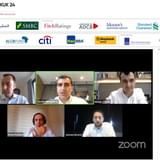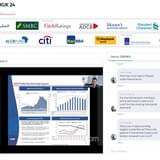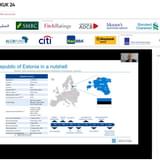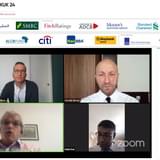Turkey needs an injection of new capital and is increasingly looking East at investors based in Asia to provide a fresh boost following a turbulent few years for foreign direct investment into the country. Asian interest is also increasing in volume in the infrastructure sector and Islamic finance, particularly from investors based in other Muslim-majority countries like Malaysia and Indonesia. The intent and the building blocks are there, but is concrete and sustained Asian investment into Turkey on its way?
One of the underlying factors driving this is the Belt and Road Initiative (BRI), established by the Chinese government as a large-scale logistics and power infrastructure investment programme, designed to bolster China’s access to global markets. Since the establishment of the BRI in 2013 and ICBC’s arrival to Turkey in 2015, Asian banks are increasing their presence in the country, most recently with Bank of China – which commenced operations in May 2018.
This expansion into the Turkish financial market illustrates China’s recognition of Turkey as a key component in realising the BRI. As part of this initiative several Chinese backed projects will be coming to market in Turkey in 2019 and Chinese investors have been thus far supportive of these projects. In order to further bolster Asian investors’ presence in Turkey, how can corporates encourage Asian investors to be become fixed players in the market?
Asian banks are also playing a key role in refinancing Turkey’s infrastructure projects. In 2018, ICBC was authorized to refinance the USD2.7bn loan for Istanbul’s Third Bridge and the Canakkale Highway. However, shareholders are now pulling out of mega PPP projects, leaving the door open for new money from Asian liquidity pools. In order to plug this gap by maintaining existing or securing new Asian infrastructure investment, Turkish corporates need to generate a strong yield on current investment and a robust pipeline of projects for completion.
Diversifying Eastward
For Turkish players wanting to attract more investment from the Far East, they understand they need to diversify funding and investment sources. After an excess exposure to the dollar in 2018, Turkey is learning its lesson; the baseline for diversifying portfolios is to examine the other options that are on the table aside from USD and EUR markets.
As a result, sourcing and converting Asian investment is becoming more of a priority for Turkey. Turkish banks are certainly keen to open up the communication with Asian investors, and we note a number of roadshows involving Turkish corporates have been taking place across the APAC region, with particular focus on China, Taiwan and Hong Kong.
The main challenge facing the Turkish market is realising this investment, with many Asia-based investors sitting on the side-lines, waiting for positive shifts in the macro environment. In order to allay any doubt from Asian investors, Turkey needs to show it can successfully manage its FX risk.
By tightening monetary policy and imposing FX restrictions, the Turkish market is taking steps to do so. It remains to be seen how these developments will affect Asian investor appetite for Turkish credit opportunities during the second half of 2019, although with Chinese banks on the ground in Turkey, and Asian-backed projects coming out of the starting blocks, the signs look positive.
Will Sukuk Drive the East-West Capital Corridor?
There is increasing appetite in the market for Islamic finance, particularly from the corporate sector – which has largely been absent from the wholesale participation banking market.
As part of a wider drive for Turkish players to diversify their funding mix, they are also looking to Asia for diversification through sharia-compliant markets. Malaysian and Indonesian investors are of particular interest due to their deepening institutional investment base and well-developed sukuk markets.
If Turkey wants to secure Asian investment, sovereign and private institutions need to show strong fundamentals, shrewd monetary policy and above all, strong return on investment. The first quarter of this year provided Asian investors with an opportunity to buy debt at rock-bottom prices, guaranteeing a return on their investment.
With Chinese-backed projects coming online in 2019 and Turkish banks stepping up their efforts to meet with Asian investors in Q1 and beyond, the realisation of Asian investment looks set to continue.









